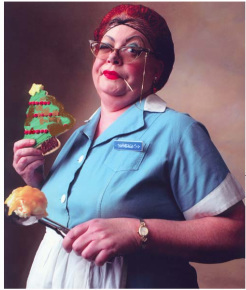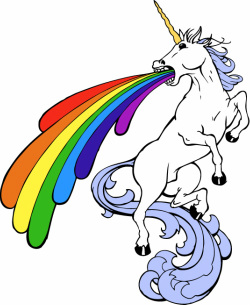The eldest children in families tend to develop higher I.Q.’s than their siblings, researchers are reporting today, in a large study that could settle more than a half-century of scientific debate about the relationship between I.Q. and birth order.
Readers' Questions
Dr. Frank Sulloway, an expert on family dynamics, answered readers' questions about birth order and intelligence. Read his answers.
The average difference in I.Q. was slight — three points higher in the eldest child than in the closest sibling — but significant, the researchers said. And they said the results made it clear that it was due to family dynamics, not to biological factors like prenatal environment.
Researchers have long had evidence that firstborns tended to be more dutiful and cautious than their siblings, and some previous studies found significant I.Q. differences. But critics said those reports were not conclusive, because they did not take into account the vast differences in upbringing among families.
Three points on an I.Q. test may not sound like much. But experts say it can be a tipping point for some people — the difference between a high B average and a low A, for instance. That, in turn, can have a cumulative effect that could mean the difference between admission to an elite private liberal-arts college and a less exclusive public one.
Moreover, researchers said yesterday that the results — being published today in separate papers in two journals, Science and Intelligence — would lead to more intensive study into the family dynamics behind such differences. Though the study was done in men, the scientists said the results would almost certainly apply to women as well.
“I consider these two papers the most important publications to come out in this field in 70 years; it’s a dream come true,” said Frank J. Sulloway, a psychologist at the Institute of Personality and Social Research at the University of California, Berkeley.
Dr. Sulloway, who was not involved in the study but wrote an editorial accompanying it, added that “there was some room for doubt about this effect before, but that room has now been eliminated.”
Effects of birth order are notoriously difficult to study, and some critics are still dubious. Joseph Lee Rodgers, a psychologist at the University of Oklahoma and a longtime skeptic of such effects, said the new analysis was not conclusive.
“Past research included hundreds of reported birth order effects” that were not legitimate, Dr. Rodgers wrote in an e-mail message. “I’m not sure whether the patterns in the Science article are real or not; more description of methodology is required.”
In the study, Norwegian epidemiologists analyzed data on birth order, health status and I.Q. scores of 241,310 18- and 19-year-old men born from 1967 to 1976, using military records. After correcting for factors that may affect scores, including parents’ education level, maternal age at birth and family size, the researchers found that eldest children scored an average of 103.2, about 3 percent higher than second children (100.3) and 4 percent higher than thirdborns (99.0).
The difference was an average, meaning that it varied by family and showed up in most families but not all.
The scientists then looked at I.Q. scores in 63,951 pairs of brothers, and found the same results. Differences in household environments did not explain elder siblings’ higher scores.
Because sex has little effect on I.Q. scores, the results almost certainly apply to females as well, said Dr. Petter Kristensen, an epidemiologist at the University of Oslo and the lead author of the Science study. His co-author was Dr. Tor Bjerkedal, an epidemiologist at the Norwegian Armed Forces Medical Services.
To test whether the difference could be due to biological factors, the researchers examined the scores of young men who became the eldest in the household after an older sibling had died. Their scores came out the same, on average, as those of biological firstborns.
“This is quite firm evidence that the biological explanation is not true,” Dr. Kristensen said in a telephone interview.
Social scientists have proposed several theories to explain how birth order might affect intelligence scores. Firstborns have their parents’ undivided attention as infants, and even if that attention is later divided evenly with a sibling or more, it means that over time they will have more cumulative adult attention, in theory enriching their vocabulary and reasoning abilities.
But this argument does not explain a consistent finding in children under 12: among these youngsters, later-born siblings actually tend to outscore the eldest on I.Q. tests. Researchers theorize that this precociousness may reflect how new children alter the family’s overall intellectual resource pool.
Adding a young child may, in a sense, diminish the family’s overall intellectual environment, as far as an older sibling is concerned; yet the younger sibling benefits from the maturity of both the parents and the older brother or sister. This dynamic may quickly cancel and reverse the head start the older child received from his parents.
Still, the question remains: How do the elders sneak back to the head of the class?
One possibility, proposed by the psychologist Robert Zajonc, is that older siblings consolidate and organize their knowledge in their natural roles as tutors to junior. These lessons, in short, benefit the teacher more than the student.
Another potential explanation concerns how siblings find a niche in the family. Some studies find that both the older and younger siblings tend to describe the firstborn as more disciplined, responsible, high-achieving. Studies suggest — and parents know from experience — that to distinguish themselves, younger siblings often develop other skills, like social charm, a good curveball, mastery of the electric bass, acting skills.
“Like Darwin’s finches, they are eking out alternative ways of deriving the maximum benefit out of the environment, and not directly competing for the same resources as the eldest,” Dr. Sulloway said. “They are developing diverse interests and expertise that the I.Q. tests do not measure.”
This kind of experimentation might explain evidence that younger siblings often live more adventurous lives than their older brother or sister. They are more likely to participate in dangerous sports than eldest children, and more likely to travel to exotic places, studies find. They tend to be less conventional than firstborns, and some of the most provocative and influential figures in science spent their childhoods in the shadow of an older brother or sister (or two or three or four).
Charles Darwin, author of the revolutionary “Origin of Species,” was the fifth of six children. Nicolaus Copernicus, the Polish-born astronomer who determined that the sun, not the earth, was the center of the planetary system, grew up the youngest of four. The mathematician and philosopher René Descartes, the youngest of three, was a key figure in the scientific revolution that began in the 16th century.
Firstborns have won more Nobel Prizes in science than younger siblings, but often by advancing current understanding, rather than overturning it.
“It’s the difference between every-year or every-decade creativity and every-century creativity,” Dr. Sulloway said, “between innovation and radical innovation.”






 RSS Feed
RSS Feed